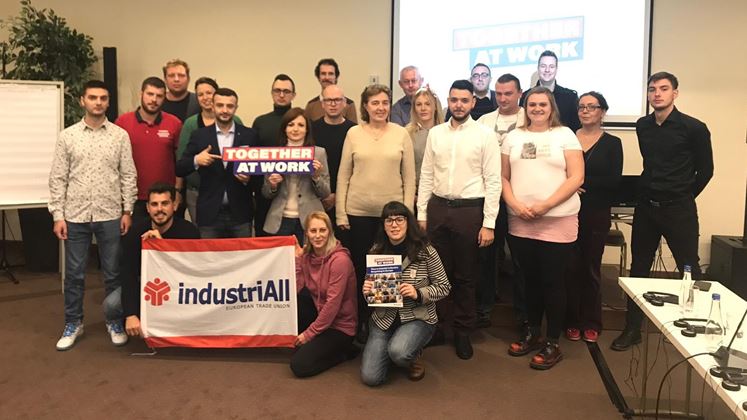
Collective bargaining: getting young workers out of precariousness
Date
Sections
The dismantling of collective bargaining systems across Europe during the crisis has had a very strong impact on young people, who were left outside the protection of collective agreements. As a result, they were stuck in a vicious circle of insecure work and low pay, on temporary working contracts and very often in long periods of unemployment.
With the campaign, we aim to shed some light on the reality that many young workers and apprentices are facing in Europe and to bust the myths and misconception about young people.
Here are some insights from our Mythbuster report "Young people just don’t like hard work"
- Young workers do not choose to work part-time, but they are forced to do it in lack of any other alternatives. Across the EU, about one in four part-time workers and every second employee with a temporary contract stated in 2017 that they would prefer – but could not find – a standard job. Over a quarter of young people working part time in Europe say they want a full time job but cannot find one.
- Young people do not want to be self-employed because they like the flexibility. Over one in five self-employed people are either in vulnerable or hidden self-employment. This means that they have low earnings and don’t benefit from the autonomy usually associated with being your own boss. Often, employers make workers register as self-employed to reduce their costs in taxes and social security. Only half of self-employed people without employees say they chose to work for themselves, and 24 percent say they had no alternative.
- Getting a job stopped being the way to get out of poverty. In-work poverty has skyrocketed, particularly for young people. 10% of young people that have a job are at risk of poverty around Europe. The numbers are highest in Spain and Romanian at above 16%, but are also worrying in some Nordic countries, like Denmark and Norway, with 14.5% and 16%, respectively.
Luc Triangle, General Secretary of industriAll Europe, explains: “The dismantling of collective bargaining systems across Europe during the crisis has put the future of young people at stake. We have seen precarious work explode everywhere in different forms: low wages, insecure contracts, bogus self-employment, irregular or too few hours of work. This particularly affects young people, but the erosion of conditions is also impacting on older workers, particularly when they must change jobs. The answer is collective bargaining where workers can use their combined strength to win better security for all.”


During this month of our 'Together at Work' campaign, we focus on the benefits of collective bargaining for young workers and apprentices. This category of workers is in a particularly alarming situation, because they are most likely to be on a precarious contract.https://news.industriall-europe.eu/Article/407
About the campaign
The objective of industriAll Europe’s collective bargaining campaign is to demonstrate the positive impact of collective bargaining, underpinned by strong unions, in delivering a better life for workers. It consists of 7 targeted campaigns, each lasting one month. The ‘Young Workers’ Campaign’ runs from 13 January – 7 February.
The campaign can also be followed on facebook (@industriAllEU), twitter (@industriAll_EU) and instagram (industriall_europe).
Visit togetheratwork.eu for more information.
See the campaign coverage here. Watch the campaign video.
Contact Patricia Velicu for more information or further comment.
